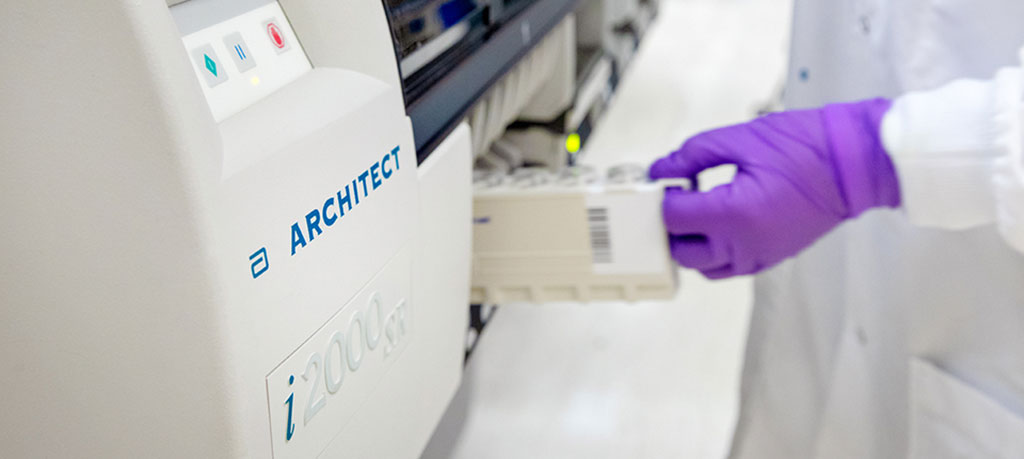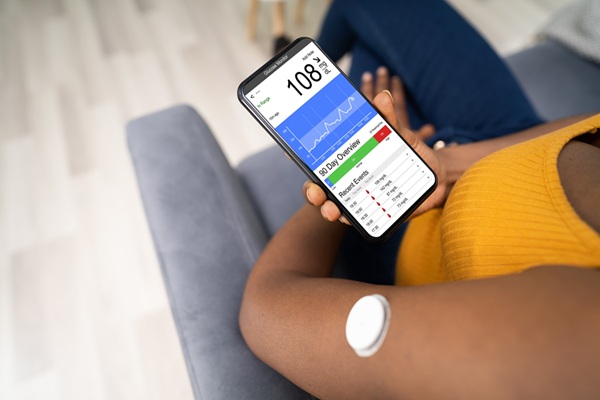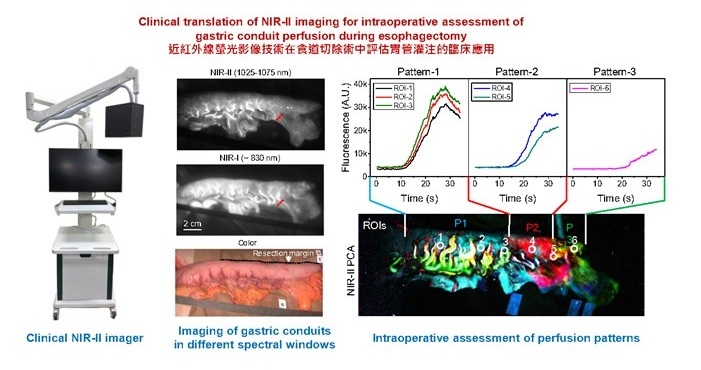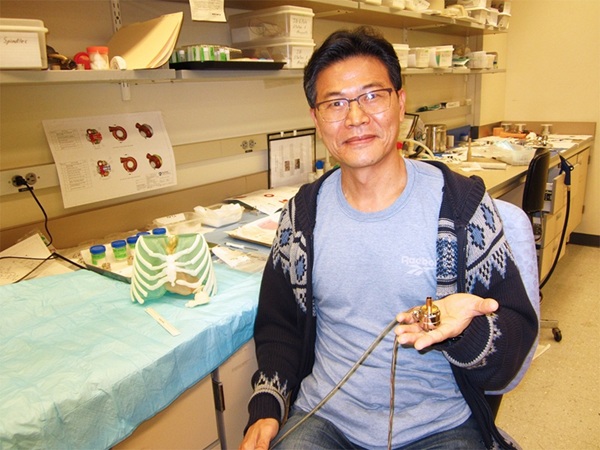Abbott COVID-19 IgM Antibody Blood Test Granted FDA Emergency Use Authorization
|
By HospiMedica International staff writers Posted on 13 Oct 2020 |

Image: ARCHITECT i2000SR (Photo courtesy of Abbott)
Abbott (Lake Forest, IL, USA) has been granted Emergency Use Authorization (EUA) by the US Food and Drug Administration (FDA) for the company's AdviseDx SARS-CoV-2 IgM (Immunoglobulin M) lab-based serology test for use on the ARCHITECT and Alinity platforms.
Since the start of the pandemic, Abbott has received EUAs for seven tests, including molecular tests, a rapid antigen test and an IgG antibody test. The company first developed an IgG blood test, which often is the antibody that is longer-lasting in the body after infection. The test helps in understanding if someone has recovered from the virus, as well as contact tracing and epidemiological studies. The IgM antibody, in comparison, is most useful for determining a recent infection as these antibodies become undetectable weeks to months following infection. Having this more complete picture of where a patient is in their recovery can help healthcare providers determine if treatment, isolation or follow-up visits are needed.
Similar to its IgG blood test, the IgM test has demonstrated high reliability in both Abbott's research and external virology laboratory studies. Abbott's data demonstrated 99.56% specificity and 95.00% sensitivity for patients tested 15 days after symptom onset. The IgM test is now available on the company’s ARCHITECT and Alinity platforms.
"Abbott has developed tests to detect the virus at each stage of infection so doctors and their patients are equipped with knowledge of how they are responding to the virus and progressing through recovery," said Robert B. Ford, president and chief executive officer, Abbott. "Antibody tests will continue to play an important role to better understand the virus, the prevalence of COVID-19 in an area and where a patient may be in their recovery."
Since the start of the pandemic, Abbott has received EUAs for seven tests, including molecular tests, a rapid antigen test and an IgG antibody test. The company first developed an IgG blood test, which often is the antibody that is longer-lasting in the body after infection. The test helps in understanding if someone has recovered from the virus, as well as contact tracing and epidemiological studies. The IgM antibody, in comparison, is most useful for determining a recent infection as these antibodies become undetectable weeks to months following infection. Having this more complete picture of where a patient is in their recovery can help healthcare providers determine if treatment, isolation or follow-up visits are needed.
Similar to its IgG blood test, the IgM test has demonstrated high reliability in both Abbott's research and external virology laboratory studies. Abbott's data demonstrated 99.56% specificity and 95.00% sensitivity for patients tested 15 days after symptom onset. The IgM test is now available on the company’s ARCHITECT and Alinity platforms.
"Abbott has developed tests to detect the virus at each stage of infection so doctors and their patients are equipped with knowledge of how they are responding to the virus and progressing through recovery," said Robert B. Ford, president and chief executive officer, Abbott. "Antibody tests will continue to play an important role to better understand the virus, the prevalence of COVID-19 in an area and where a patient may be in their recovery."
Latest COVID-19 News
- Low-Cost System Detects SARS-CoV-2 Virus in Hospital Air Using High-Tech Bubbles
- World's First Inhalable COVID-19 Vaccine Approved in China
- COVID-19 Vaccine Patch Fights SARS-CoV-2 Variants Better than Needles
- Blood Viscosity Testing Can Predict Risk of Death in Hospitalized COVID-19 Patients
- ‘Covid Computer’ Uses AI to Detect COVID-19 from Chest CT Scans
- MRI Lung-Imaging Technique Shows Cause of Long-COVID Symptoms
- Chest CT Scans of COVID-19 Patients Could Help Distinguish Between SARS-CoV-2 Variants
- Specialized MRI Detects Lung Abnormalities in Non-Hospitalized Long COVID Patients
- AI Algorithm Identifies Hospitalized Patients at Highest Risk of Dying From COVID-19
- Sweat Sensor Detects Key Biomarkers That Provide Early Warning of COVID-19 and Flu
- Study Assesses Impact of COVID-19 on Ventilation/Perfusion Scintigraphy
- CT Imaging Study Finds Vaccination Reduces Risk of COVID-19 Associated Pulmonary Embolism
- Third Day in Hospital a ‘Tipping Point’ in Severity of COVID-19 Pneumonia
- Longer Interval Between COVID-19 Vaccines Generates Up to Nine Times as Many Antibodies
- AI Model for Monitoring COVID-19 Predicts Mortality Within First 30 Days of Admission
- AI Predicts COVID Prognosis at Near-Expert Level Based Off CT Scans
Channels
Critical Care
view channel
AI-Enhanced Wearables Could Transform Type 2 Diabetes and Prediabetes Care
Artificial intelligence (AI)–powered wearable devices, particularly continuous glucose monitors, are rapidly changing how people with prediabetes and Type 2 diabetes understand and manage their blood sugar.... Read more
Breathable Electronic Skin Paves Way for Next-Generation Wearable Devices
Electronic skin devices are designed to adhere closely to the human body to monitor health and biosignals, but long-term use often leads to skin irritation caused by trapped sweat and poor breathability.... Read moreSurgical Techniques
view channel
Novel Imaging Technique Helps View Blood Perfusion During Esophageal Surgery
Esophagectomy is a complex and high-risk surgery often required for esophageal cancer, with anastomotic leakage remaining one of its most serious complications. This defect at the surgical suture line... Read more
Minimally Invasive Surgery Proven Safe and Effective for Complex ‘Whipple’ Procedure
Tumors of the pancreatic head often require a highly complex operation known as pancreatoduodenectomy or the Whipple procedure. This surgery involves removing multiple structures and creating several internal... Read more
Catheter-Based Procedures Offer Less Invasive Option for Treatment of Valvular Disease
Valvular heart disease, caused by tight or leaky valves between heart chambers, affects up to 10% of older adults and leads to more than 120,000 deaths globally each year. Traditional open-heart surgery... Read morePatient Care
view channel
Revolutionary Automatic IV-Line Flushing Device to Enhance Infusion Care
More than 80% of in-hospital patients receive intravenous (IV) therapy. Every dose of IV medicine delivered in a small volume (<250 mL) infusion bag should be followed by subsequent flushing to ensure... Read more
VR Training Tool Combats Contamination of Portable Medical Equipment
Healthcare-associated infections (HAIs) impact one in every 31 patients, cause nearly 100,000 deaths each year, and cost USD 28.4 billion in direct medical expenses. Notably, up to 75% of these infections... Read more
Portable Biosensor Platform to Reduce Hospital-Acquired Infections
Approximately 4 million patients in the European Union acquire healthcare-associated infections (HAIs) or nosocomial infections each year, with around 37,000 deaths directly resulting from these infections,... Read moreFirst-Of-Its-Kind Portable Germicidal Light Technology Disinfects High-Touch Clinical Surfaces in Seconds
Reducing healthcare-acquired infections (HAIs) remains a pressing issue within global healthcare systems. In the United States alone, 1.7 million patients contract HAIs annually, leading to approximately... Read moreHealth IT
view channel
EMR-Based Tool Predicts Graft Failure After Kidney Transplant
Kidney transplantation offers patients with end-stage kidney disease longer survival and better quality of life than dialysis, yet graft failure remains a major challenge. Although a successful transplant... Read more
Printable Molecule-Selective Nanoparticles Enable Mass Production of Wearable Biosensors
The future of medicine is likely to focus on the personalization of healthcare—understanding exactly what an individual requires and delivering the appropriate combination of nutrients, metabolites, and... Read moreBusiness
view channel
Philips and Masimo Partner to Advance Patient Monitoring Measurement Technologies
Royal Philips (Amsterdam, Netherlands) and Masimo (Irvine, California, USA) have renewed their multi-year strategic collaboration, combining Philips’ expertise in patient monitoring with Masimo’s noninvasive... Read more
B. Braun Acquires Digital Microsurgery Company True Digital Surgery
The high-end microsurgery market in neurosurgery, spine, and ENT is undergoing a significant transformation. Traditional analog microscopes are giving way to digital exoscopes, which provide improved visualization,... Read more
CMEF 2025 to Promote Holistic and High-Quality Development of Medical and Health Industry
The 92nd China International Medical Equipment Fair (CMEF 2025) Autumn Exhibition is scheduled to be held from September 26 to 29 at the China Import and Export Fair Complex (Canton Fair Complex) in Guangzhou.... Read more















